Mr Justice Mark Heslin issued his judgement today in respect of the case taken by lay litigant and academic, Dr Cora Stack.
The High Court rejected Dr Stack’s application which, if carried, would have halted tomorrow’s presidential election.
In refusing leave to seek judicial review, the Judge awarded costs against Dr Stack in favour of the respondents, who he said ‘have been entirely successful in opposing the application.’
Dr Stack argued that Simon Harris had unlawfully interfered with the presidential election by instructing Fine Gael councillors not to support the nominations of independent candidates.
This argument was rejected by Justice Mark Heslin, who said the constitution did not prohibit the use of the party whip in relation to Article 12.4.3.
In his lengthy judgement which ran to 35 pages, the Judge noted that both political parties and ‘the whip’ as a system pre-date the Constitution. He referred to ‘the whip’s’ initial use by Charles Stewart Parnell as leader of the Irish Parliamentary party in the late 1800’s.
The Judge said that since the drafters of the Irish Constitution would have been aware of the existence of both entities (political parties and the whip system), it was open to them to include a direction that no such limit should apply to decision making by councillors in Article 12.
“The People made no such choice,” the Judge said.
“Given that the role of the ‘whip’ in political decision-making cannot have been unknown to the drafters of the 1936 Constitution, it is appropriate to look at what is contained in Art.12, including:
“12.4 1° Every citizen who has reached his thirty-fifth year of age is eligible for election to the office of President.
2° Every candidate for election, not a former or retiring President, must be nominated either by i. not less than twenty persons, each of whom is at the time a member of one of the Houses of the Oireachtas, or
ii. by the Councils of not less than four administrative Counties (including County Boroughs) as defined by law.
3° No person and no such Council shall be entitled to subscribe to the nomination of more than one candidate in respect of the same election.
4° Former or retiring Presidents may become candidates on their own nomination.
5° Where only one candidate is nominated for the office of President it shall not be necessary to proceed to a ballot for his election.
5. Subject to the provisions of this Article, elections for the office of President shall be
regulated by law...”
The Judge summarised Stack’s argument in her written submissions in relation to the block applied by Fine Gael as follows:
The Fine Gael block (whip) block order ‘instruction to Councillors not to nominate’ and other political party strategic blocking of non-party candidates was a disproportionate measure, an extra bar only for non-party candidates outside the political party candidates in the presidential race, which is not constitutional...
The block order (whip) should be struck down as an unconstitutional, disproportionate measure which was excessively onerous for non-party candidates who are not ‘politicians’ or members of these political parties. Neither is the President a political role, it’s meant to be independent from politics. The block was arbitrary, harsh and severe and arguably oppressive against non-party candidates (minorities)...
The block has implemented without any regard for constitutional rights of those that with a lawful right to seek nominations...
It represented an undue impediment on the otherwise lawful right of the candidate to be nominated...”
A party whip (block order) should never be used against unelected ordinary citizens...
Using whip to not nominate, to oppose to block non-party candidates was contrary to the spirit of the Constitution. Whether it was done to protect party candidates who were perceived as vulnerable or out of bias towards anyone not espousing establishment views remains uncertain. Perhaps it was both.
Stack argued that the practical result of this was
“…in many councils there was no candidate to vote for, a constitutional distortion unprecedented in Presidential Elections.”
Stack further argued that:
“Articles 12, 34, 40.1 and 40.3 guarantee equality before the law, fair procedures, and access to justice. Blocking practices and the legislative vacuum breached these guarantees. They also breach Article 3, Protocol 1 of the ECHR (Free elections) and articles 39 and 47 of the EU Charter (right to stand, right to an effective remedy).”
Responding to Dr Stack’s arguments, Justice Heslin stated in his judgement:
“As can be seen from the foregoing, the applicant objects to the role played by political parties in the nomination process. That being so, two issues seen to deserve emphasis. First, no specific evidence is needed for me to say that the existence and operation of political parties stretches back centuries before the enactment of the Constitution. As the learned authors explain in “JM Kelly: The Irish Constitution” (Hogan & Whyte, 4th Edition, Tuttle Publishing at P. 1804 [7.5.192]):
“Political parties as such are not mentioned in the Constitution – the right to form and join political parties is taken for granted as simply a normal product of the right of association, or, in the terms of the older common law, as part of the range of activity which, not being unlawful, was therefore inferentially lawful...”
“Second, the role of the ‘whip’ in relation to decision making by members of a political party, also predates the enactment of the 1936 Constitution by generations. Indeed, half a century earlier as revered a political figure as Charles Stewart Parnell was renowned for imposing ‘iron’ discipline on party members. As the celebrated historian F.S.L. Lyons wrote in his definitive biography of Parnell:
“Undoubtedly the most important commitment entered into by a successful candidate, and to which he had to give his written assent before nomination – was the party pledge. In and after 1885 it was required in principle of all candidates...and the essence of the undertaking was that the candidate pledged himself, if elected, to ‘sit, act and vote with the Irish Parliamentary Party’. In addition the candidate promised to resign his seat if at a specially convened meeting a majority of the whole party decided that they had not fulfilled the pledge.”
(“Charles Stewart Parnell”; F.S.L. Lyons; Oxford University Press; p. 256)
“Three points seem to me to arise. First, Art. 12 imposes a specific restriction relevant to decision-making by Councils (and, thus, binding on the Councillors who, collectively, comprise the decision-makers in each Council) in relation to the nomination of candidates for a Presidential election, i.e. under Art. 12.4. 3°, no Council can nominate more than one candidate for the same election. That being so, it seems to me that if the will of the Irish people was to impose another restriction, i.e. the condition that no political party ‘whip’, direction, or request shall apply to decision-making by Councillors, with regard to Art. 12.4.3°, it was open to the People to specify same in Art. 12. The People made no such choice.”
The Judge referenced Article 28A which refers to local government ‘in providing a democratic representation of local communities.’
In his commentary on this Article, Mr Justice Heslin stated:
“Bearing in mind that local authorities are comprised of directly-elected politicians, there is nothing in 28A which excludes the use of a ‘whip’, direction, or request by a political party, of which a local Councillor may be a member, with regard to the carrying out, by a Council, of its “powers and functions”. This is despite the fact that Art. 28A makes explicit that the performance by local authorities of their powers and duties shall be “subject to the provisions of the Constitution”.
The above analysis eludes to only a fraction of the 35 page commentary from the Judge.
He acknowledged the ‘time and energy’ that Dr Stack devoted to her cause.
“Although not a legal professional, the applicant (who represented herself, with assistance from a ‘McKenzie friend’) also made oral submissions during the hearing with great energy, obvious conviction and, at times, heightened emotion, reflecting what would appear to be her passionate belief in the correctness of her position,” he said.
***
Is it worth noting that in his lengthy judgement, Justice Heslin makes no specific reference to Article 12.2.1°?
“The President shall be elected by direct vote of the people.”
Perhaps because Dr Cora Stack - in her submitted affidavits - didn’t either.
I am interested in the Gaelic translation of that particular article, having had a Gaeilgeoir visitor at the cottage this week whom I asked to interpret the Irish version, which is printed in the ‘Old Script’ or Cló Gaelach as follows:
Our visitor, who has worked in translation services at EU level, drew particular attention to the word ‘lom’ and translated it to mean bare, as in the trees stripped bare, naked and in relation to the Article above in the Constitution, ‘without interference.’
In his book ‘Bunreacht na hÉireann: study of the Irish text’ (1999) Mícheál Ó Cearúil noted that Article 25.5.4 of the Constitution provides that, ‘in the event of a conflict with the English version, the Irish version of the Constitution will prevail.’
In his foreword, Brian Lenihan TD (RIP) reiterated this point:
“It should be noted that the constitutional test in both official languages is authentic. Article 25 provides that in case of conflict between the enrolled texts, the Irish language text prevails.”
Lenihan states the following as a ‘clear lesson’ from Mícheál Ó Cearúil’s work:
“The present Irish text of the Constitution illustrates the richness and antiquity of the language. Some of the terms employed in the Constitution have a lineage that can be traced back to the eighth century.
“The language spoken in the Gaeltacht in particular and taught in schools is the proud inheritance of a spoken tradition which has evolved over more than two millenia.”
I am just curious really, about the interpretation of the translated term ‘direct vote of the people’ and whether generations of our Irish speaking ancestors could have envisaged or anticipated the implications of Simon Harris’ use of ‘the whip’ to block a future President of Ireland. I’m being mischievous here obviously, but it has been quite a fascinating learning curve - this Dr Stack case - as oppose to the election campaign itself.
For a finish, this analysis of the whip system from Martin O’Donoghue of the Max Planck Institute for Legal History and Theory for RTE traces the whip system (‘which has its origins in hunting parlance') of Parnell’s time through to the resignation of former Taoiseach Leo Varadkar last year. O’Donoghue describes the whip as ‘a vexed question for advocates of political reform for generations.’
Quest to quash 'unlawful' presidential election continues
A lay litigant who sought nomination for the presidential election will have her case heard before the High Court this week.


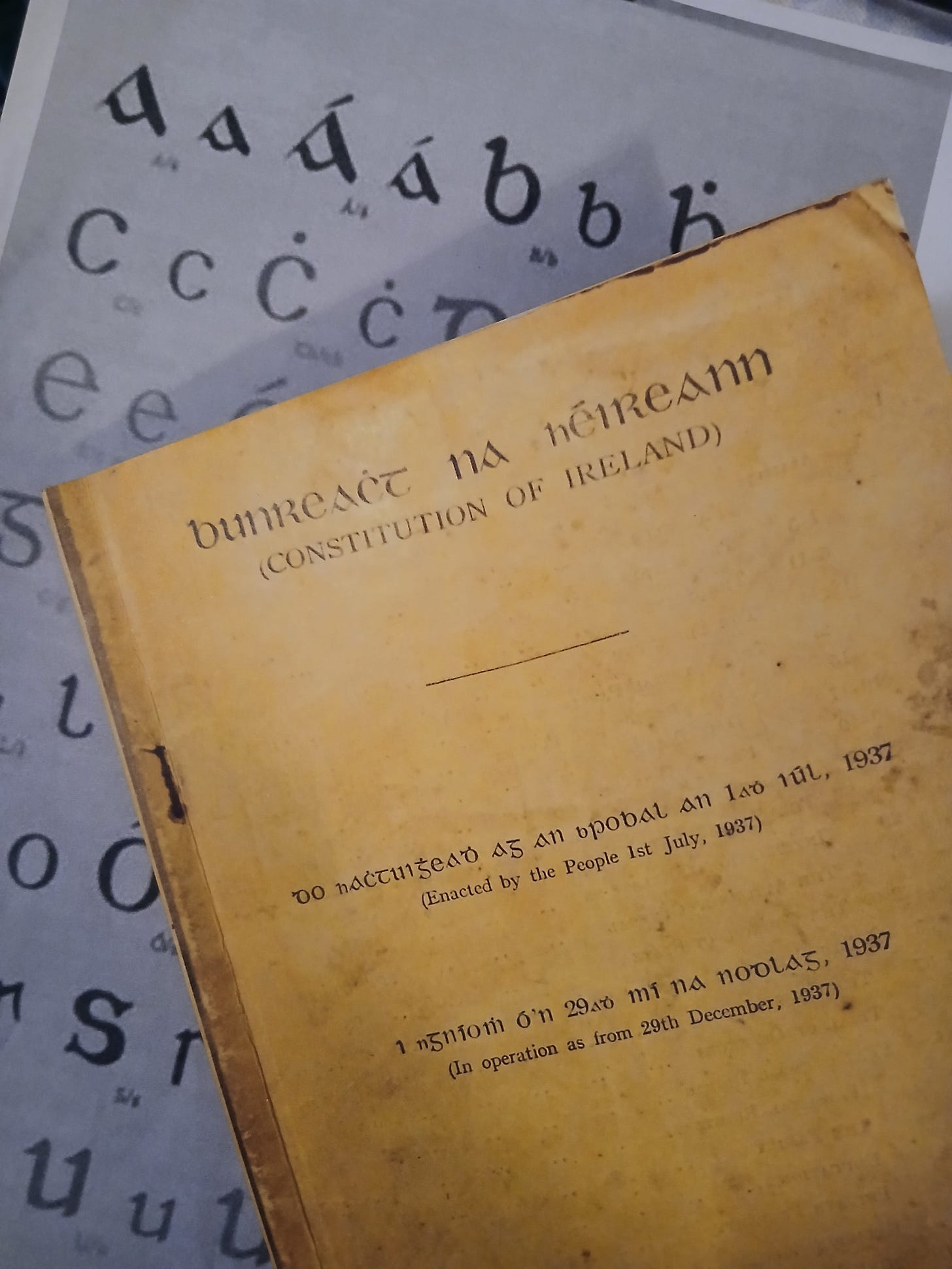
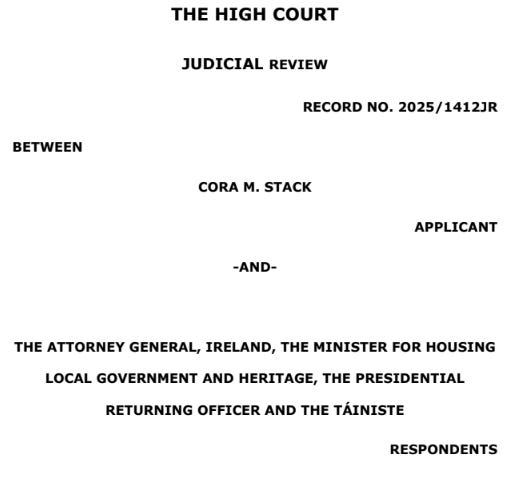

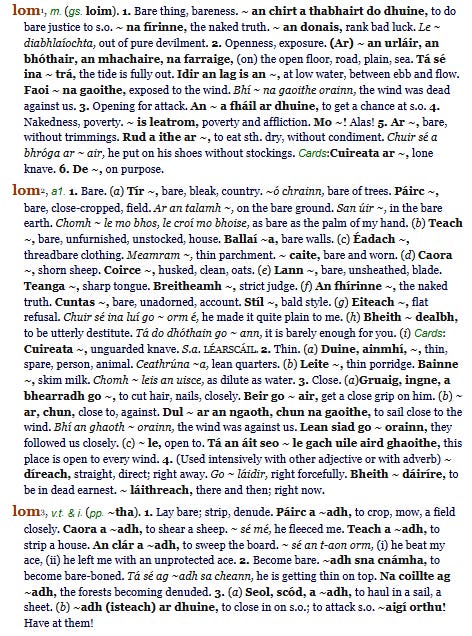
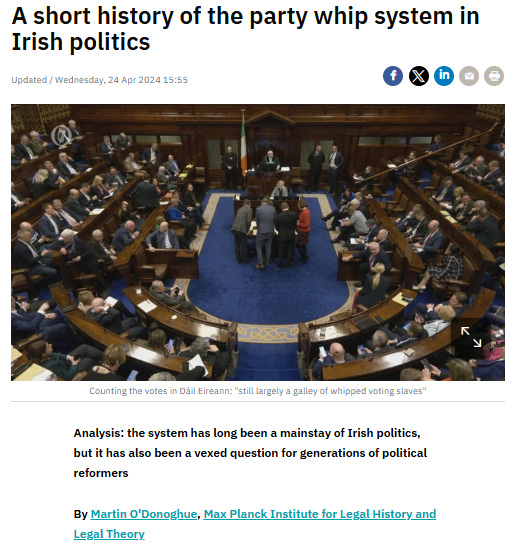
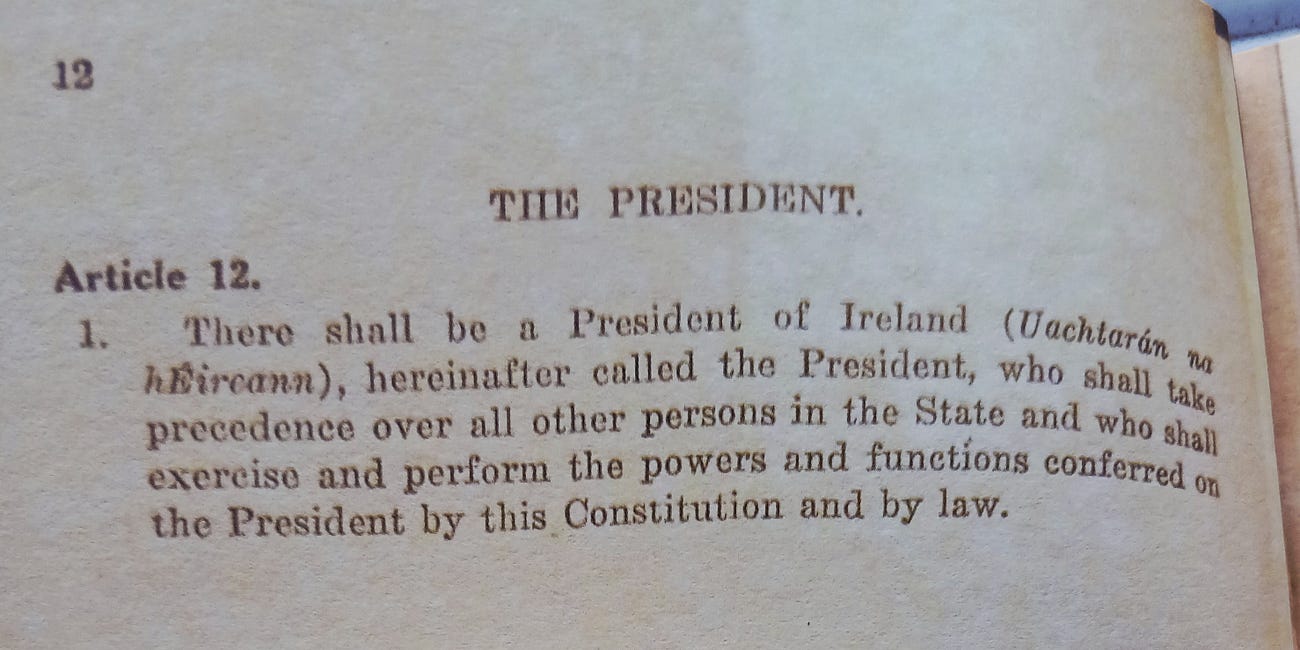
So a 19th century Whip system, from a British based rule of party politics is still being applied to Irish politics and influential in our judiciary 150 years later, despite our own Constitution.???
If you still think we're independent I've got a booster to sell you.
So the two their justice system in Ireland is moving along as normal. So now Lady Justice can fully take of her blindfold to wipe away they tiers of they Irish people who are awake enough to see the suffering and hell that they left-wing government, NGO sector and the bought of MSM, are unleashing on the people of Ireland.